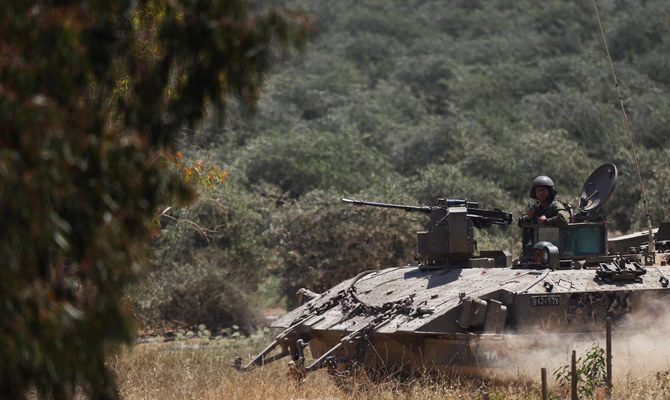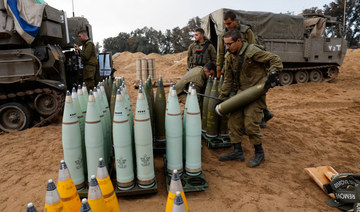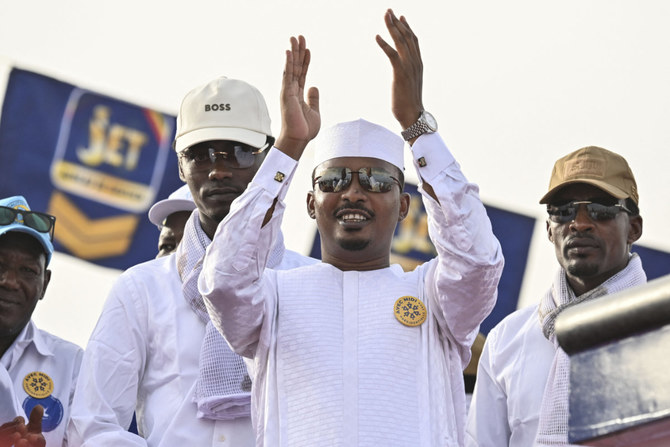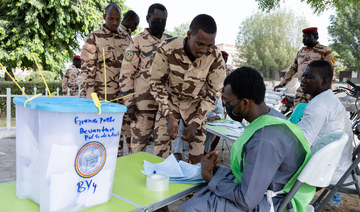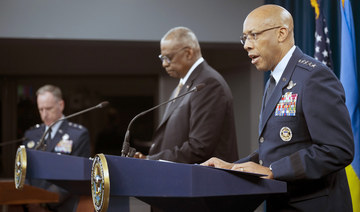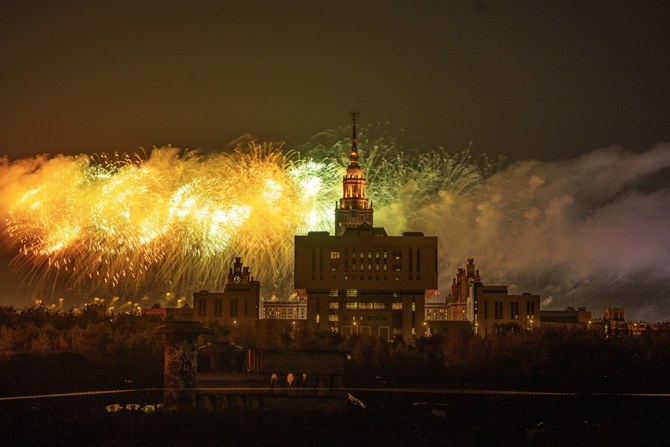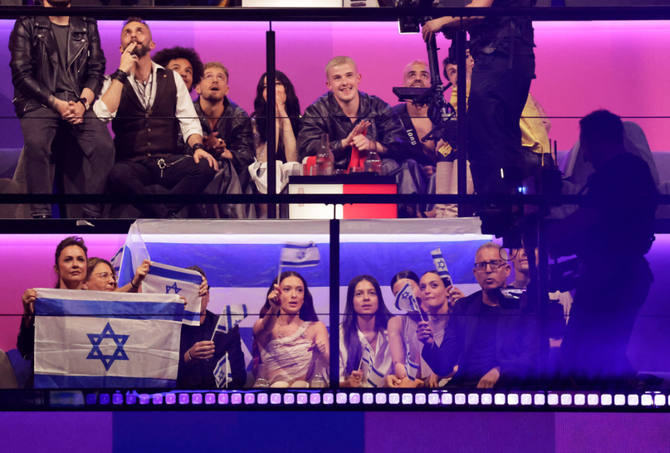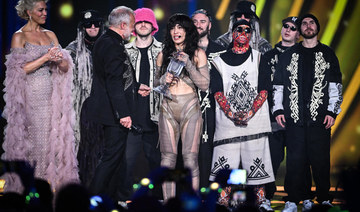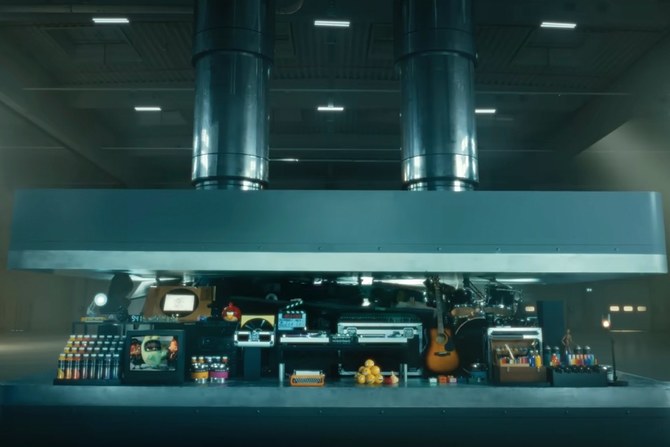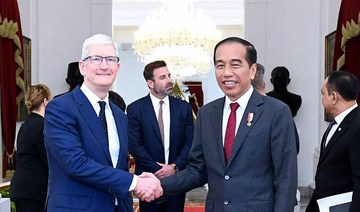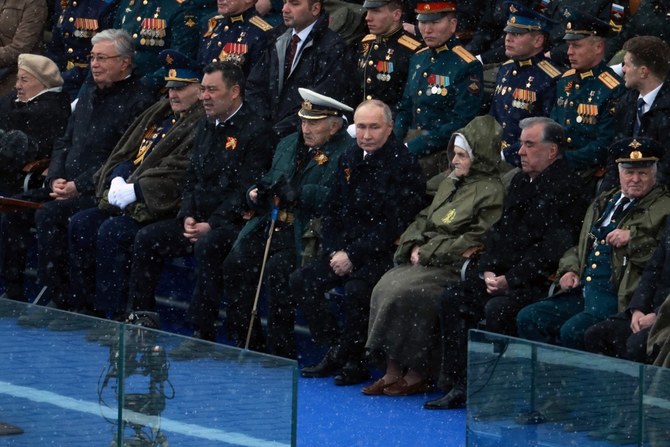WASHINGTON: Some senior US officials have advised Secretary of State Antony Blinken that they do not find “credible or reliable” Israel’s assurances that it is using US-supplied weapons in accordance with international humanitarian law, according to an internal State Department memo reviewed by Reuters.
Other officials upheld support for Israel’s representation.
Under a National Security Memorandum (NSM) issued by President Joe Biden in February, Blinken must report to Congress by May 8 whether he finds credible Israel’s assurances that its use of US weapons does not violate US or international law.
By March 24, at least seven State Department bureaus had sent in their contributions to an initial “options memo” to Blinken. Parts of the memo, which has not been previously reported, were classified.
The submissions to the memo provide the most extensive picture to date of the divisions inside the State Department over whether Israel might be violating international humanitarian law in Gaza.
“Some components in the department favored accepting Israel’s assurances, some favored rejecting them and some took no position,” a US official said.
A joint submission from four bureaus — Democracy Human Rights & Labor; Population, Refugees and Migration; Global Criminal Justice and International Organization Affairs – raised “serious concern over non-compliance” with international humanitarian law during Israel’s prosecution of the Gaza war.
The assessment from the four bureaus said Israel’s assurances were “neither credible nor reliable.” It cited eight examples of Israeli military actions that the officials said raise “serious questions” about potential violations of international humanitarian law.
These included repeatedly striking protected sites and civilian infrastructure; “unconscionably high levels of civilian harm to military advantage“; taking little action to investigate violations or to hold to account those responsible for significant civilian harm and “killing humanitarian workers and journalists at an unprecedented rate.”
The assessment from the four bureaus also cited 11 instances of Israeli military actions the officials said “arbitrarily restrict humanitarian aid,” including rejecting entire trucks of aid due to a single “dual-use” item, “artificial” limitations on inspections as well as repeated attacks on humanitarian sites that should not be hit.
Another submission to the memo reviewed by Reuters, from the bureau of Political and Military Affairs, which deals with US military assistance and arms transfers, warned Blinken that suspending US weapons would limit Israel’s ability to meet potential threats outside its airspace and require Washington to re-evaluate “all ongoing and future sales to other countries in the region.”
Any suspension of US arms sales would invite “provocations” by Iran and aligned militias, the bureau said in its submission, illustrating the push-and-pull inside the department as it prepares to report to Congress.
The submission did not directly address Israel’s assurances.
Inputs to the memo from the Office of the Special Envoy to Monitor and Combat Antisemitism and US ambassador to Israel Jack Lew said they assessed Israel’s assurances as credible and reliable, a second US official told Reuters.
The State Department’s legal bureau, known as the Office of the Legal Adviser, “did not take a substantive position” on the credibility of Israel’s assurances, a source familiar with the matter said.
State Department spokesperson Matthew Miller said the agency doesn’t comment on leaked documents.
“On complex issues, the Secretary often hears a diverse range of views from within the Department, and he takes all of those views into consideration,” Miller said.
MAY 8 REPORT TO CONGRESS
When asked about the memo, an Israeli official said: “Israel is fully committed to its commitments and their implementation, among them the assurances given to the US government.”
The White House did not respond to a request for comment.
Biden administration officials repeatedly have said they have not found Israel in violation of international law.
Blinken has seen all of the bureau assessments about Israel’s pledges, the second US official said.
Matthew Miller on March 25 said the department received the pledges. However, the State Department is not expected to render its complete assessment of credibility until the May 8 report to Congress.
Further deliberations between the department’s bureaus are underway ahead of the report’s deadline, the US official said.
USAID also provided input to the memo. “The killing of nearly 32,000 people, of which the GOI (Government of Israel) itself assesses roughly two-thirds are civilian, may well amount to a violation of the international humanitarian law requirement,” USAID officials wrote in the submission.
USAID does not comment on leaked documents, a USAID spokesperson said.
The warnings about Israel’s possible breaches of international humanitarian law made by some senior State Department officials come as Israel is vowing to launch a military offensive into Rafah, the southern-most pocket of the Gaza Strip that is home to over a million people displaced by the war, despite repeated warnings from Washington not to do so.
Israel’s military conduct has come under increasing scrutiny as its forces have killed 34,000 Palestinians in Gaza, according to the enclave’s health authorities, most of them women and children.
Israel’s assault was launched in response to the Hamas attack on Israel on Oct. 7, in which Israel says 1,200 people were killed and 250 others taken hostage.
The National Security Memorandum was issued in early February after Democratic lawmakers began questioning whether Israel was abiding by international law.
The memorandum imposed no new legal requirements but asked the State Department to demand written assurances from countries receiving US-funded weapons that they are not violating international humanitarian law or blocking US humanitarian assistance.
It also required the administration to submit an annual report to Congress to assess whether countries are adhering to international law and not impeding the flow of humanitarian aid.
If Israel’s assurances are called into question, Biden would have the option to “remediate” the situation through actions ranging from seeking fresh assurances to suspending further US weapons transfers, according to the memorandum.
Biden can suspend or put conditions on US weapons transfers at any time.
He has so far resisted calls from rights groups, left-leaning Democrats and Arab American groups to do so.
But earlier this month he threatened for the first time to put conditions on the transfer of US weapons to Israel, if it does not take concrete steps to improve the dire humanitarian situation in Gaza.



